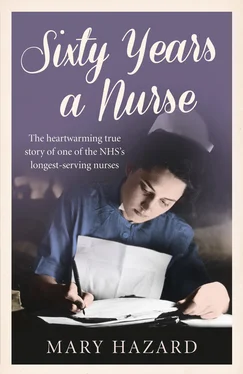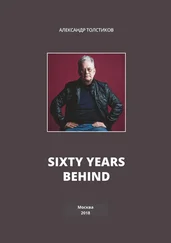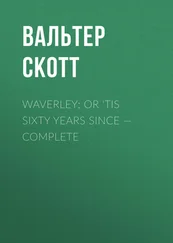Once in the busy airport, I had to find my way to Putney, wherever on earth that was. It was a long, long way from Clonmel, in the south-west of Ireland, that’s for sure. Everything looked so strange and grey, concretey and dull, after the lush green and spreading apple orchards of my beautiful home town. However, I made myself focus, as I wasn’t going to be beaten at the first hurdle (I wouldn’t give my mother that kind of satisfaction), and I soon managed to find a Greenline bus. A friendly conductor explained in broad Cockney I had to change twice to get to Putney: once in Ealing, and again in Richmond. His accent made me laugh, because it sounded so funny – the first English I’d ever really come across in person. All my life I’d dreamed of this moment, of going off to be a nurse. My mother had wanted me to study nursing in Dublin, under the beady, watchful eyes of relatives, but after a lifetime with the nuns, in convent school, I knew I could not bear another moment under their rigid, cruel control. This is where my mother and I came to bitter loggerheads, and the fight was set to continue, even though I was now in England, facing my first six months of State Registered Nurse (SRN) training. As I climbed aboard the coach, I realised it was going to be a long and memorable journey, in more ways than one.
Looking out the window, watching the unfamiliar English streets unfold, I realised I was finally escaping the confines of my home and upbringing to make this new, exciting but scary foreign start. It was 1952, and I was setting out on three years of intensive training. Ireland had been shielded, relatively, from the war, but as we drove towards London I could see bomb damage and that things were still quite austere in England. I was used to the green, lush land of Ireland, the river running past the end of our road, with its neat houses; England looked grey, suburban and a bit dreary. But it was all new to me, an adventure, and I’d finally escaped those religious, social and moral constraints that had driven me to become quite a rebellious girl.
Back home, I was the youngest of five children: four daughters, Una, Betty, Joan and me, Mary Francis, as well as a son, Peter Joseph – all of us with good Catholic names, of course. My mother, Agnes, was a seamstress and milliner, and had left school at fourteen to go into service at first. My father, George, had also left school early, but was bright, and had managed to get a good job in Customs and Excise, going around the bonded stores (which were like government-controlled warehouses), testing the specific gravity of all sorts of things, like rum and whiskey, so people didn’t get short-changed or prosecuted for doctoring goods. We lived in a big, white-painted house opposite a weir on the River Suir, on the Raheen Road, five minutes outside of rural Clonmel. It was a lovely family house, with an apple orchard down the side of the house, and a huge rambling garden with wild roses and heather, high hedges and white metal gate. On one side of the house there were my mother’s raised vegetable and fruit beds, and on the other there was a big lawn where my brother had created a little nine-hole putting course. We were quite well off, and my dad had a car (which few in the town had), a black, four-door Morris 10, which he would steer proudly up the drive, while being greeted noisily by our two liver and white Cocker Spaniels, Ivor and Vanda.
I’d wanted to be a nurse for as long as I could remember. I was always bandaging people, and pushing dolls and babies in my little black pram. I even helped a neighbour with Parkinson’s, Mrs Roach, up the road. I didn’t know what it was in those days, and there was no cure for it. This little old lady shook all the time and dribbled, and her daughter, Nora, gave up her life to look after her. I used to sit with Mrs Roach while Nora, who was a spinster in her fifties, went shopping, and I used to think, ‘I wonder why she’s like that? I wonder what can be done to help her, poor thing?’ I hadn’t a clue, but I was fascinated, and I wasn’t put off at all. I have to admit that I was a bit of a naughty child, a bit wild, I suppose. I liked climbing trees, and we nicked apples out of orchards. I loved wheeling real babies out in their high Silver Cross prams, too, and we used to wheel this baby, Frank, around, when he was about nine months old, and gradually fill up his pram with all these apples and pears we were stealing. One day, a man at the gate of an orchard stopped us, and when he pulled back the blanket, which was covering a huge lumpy heap, including a crying Frank, I was in big trouble. As my punishment, I got a walloping with a rolled-up newspaper from my father and was never allowed out with the big pram and baby Frank again.
We did go back in the orchards, though, for a different purpose. Magners and Bulmers were the local cider makers, they still are, and they had masses of huge apple orchards in Clonmel. We used to go round, in gangs of kids, with aluminium buckets and fill them up with windfalls. Then we’d get tuppence a bucket, and after a long day doing this we’d have two and six, or something like that. My father would match whatever I ‘earned’ and then I was told to put the money in my Post Office account. We did eat the apples sometimes, but they were so sour they made you wince. We rather preferred the hard cash instead – and this is the way my father taught me to save (for which I am very grateful). And it was fun – long days larking about in the sun, or rain, scrumping away, giggling and throwing rotten apples at each other.
Although there was rationing in Ireland, there was no bombing. In fact, the Irish usually sided with the Germans over the English, back then, because of our long history of strife. Because my father worked for Customs and Excise, he was well in with people, and got butter and other stuff on the black market, so we didn’t go short. We were very lucky, where others weren’t (which my mother was always reminding me of, of course). Plus, my mother was a great gardener and she would grow carrots, cauliflowers, potatoes, tomatoes, broccoli, cabbage, rhubarb, everything. I remember one day, when I was quite young, she had shouted at me about something, and, annoyed, I went out and pulled up all the baby carrots in one of her huge, beloved raised beds. I ruined the entire crop. My mother went ballistic and shouted the usual ‘Wait till yer father gets home’ threat. I tried to put the carrots back, but they were only like little fingers, and they were all floppy, and it was hopeless. I knew I was in for it, and I did get walloped – again with the rolled-up newspaper.
I think my parents loved each other, although they had quite a temperamental relationship. My mother was the ‘boss’, a ‘matriarch’, while father was the most gentle of gentlemen (at home, at least), apart from when he walloped me, which wasn’t as often as my mother, who did it a whole lot more. Although she threatened us with father’s ‘tellings offs’, she would meanwhile pick up the sweeping brush and make use of it by shaking it at us threateningly, or even hitting us, when pushed to the limits.
We all had to muck in and make the house nice, as she was very house proud, and she did everything herself. There were no ‘mod cons’, so the washing had to be scrubbed and wrung in the mangle on a Monday, the house cleaned and swept scrupulously, and the rag rugs, which my mother made by hand, had to be beaten on the line. I hated this job as the dust went in my mouth and eyes, up my nose, absolutely everywhere it possibly could. One day, when I was about ten, I was sitting on the stairs, grumpily, having to clean the brass stair rods, which held the stair carpet in place, one by one. I was supposed to pull each rod out, rub it with Brasso, put elbow grease into them until they shone, and then put them back in, at the base of the stair, through metal loops. The stairs were long and there were so many rods, so being me I tried to cut corners, but, of course, my mother caught me. Well, I was in for it. ‘Mary Francis!’ she shouted at me, and I tried to ignore her, until she was on me, pulling me off the stairs, and I was being hauled out for a walloping. I was supposed to go to the cinema that afternoon in Clonmel for sixpence, which I loved, and I was told there was no way would I be going out that day. I had to clean all the stair rods properly, all over again, through gritted teeth, until I could see my face in them. I knew I deserved it for being cheeky, but it still felt terribly unfair, so I blubbed the whole time I rubbed.
Читать дальше












